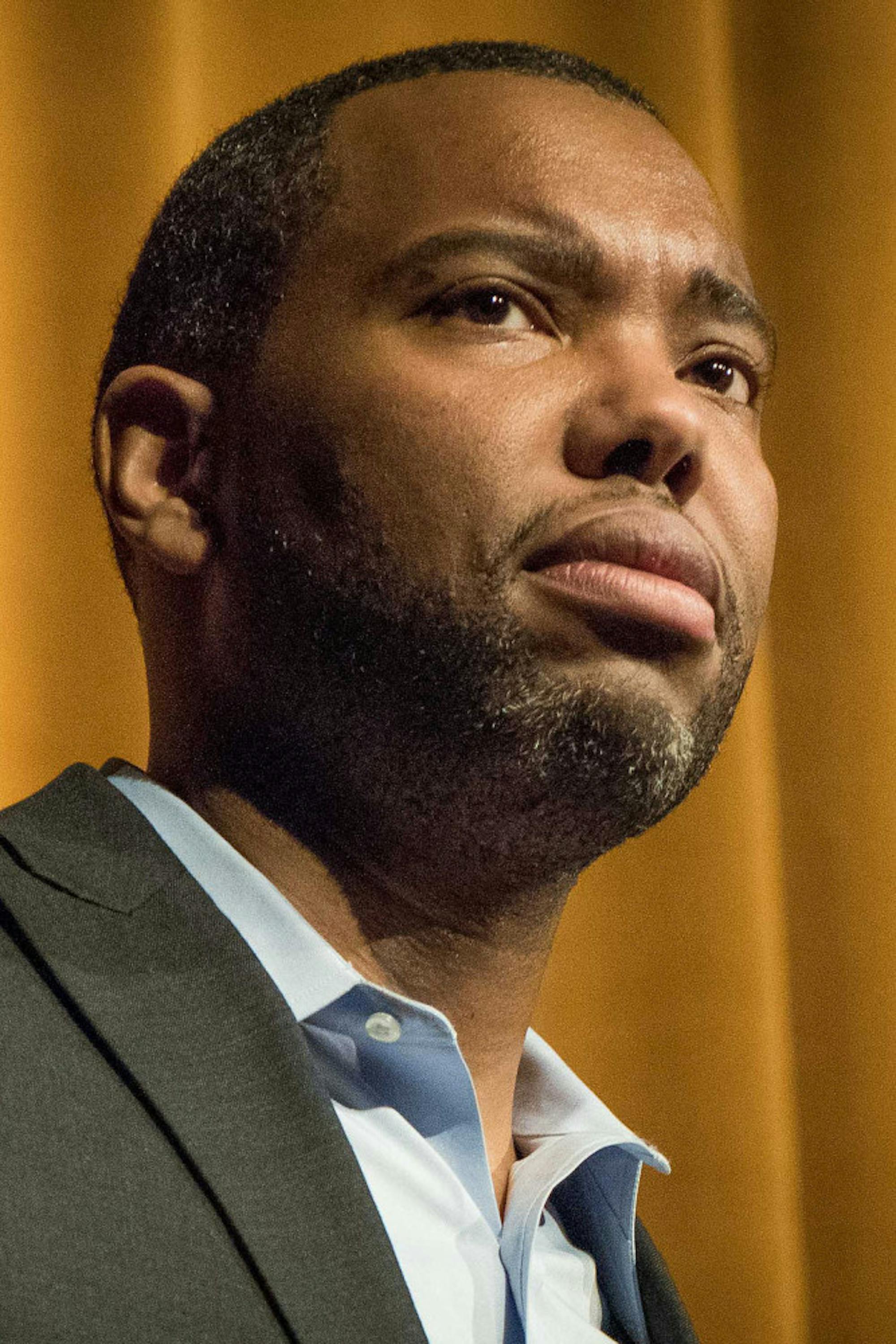The Chevalier Theater in Medford welcomed National Book Award Winner Ta-Nehisi Coateson Oct. 18 to speak about his latest work "The Water Dancer" (2019), a fictional work following protagonist Hiram as he recounts his escape from slavery. He and other characters in the novel, like Harriet Tubman, have magical powers which help them escape. Hiram has the gift of an extraordinary memory, the trigger for his powers, but the only thing he cannot remember is his mother. The novel becomes a quest in remembering and learning how to use said powers.
Coatesspoke about the importance of memory on multiple occasions. Not only did he want to write a book about remembering, he also wanted to write a book which would create a counter-story, affecting the memory of its readers. He explained that black writers often “take outlines of white heroism and paint it black.” He asked himself on stage how he “could tell a different story.” What would he include? Coates explained that he didn’t want to include anything violent, so he really “laid into non-violence” in his writing. This also seemed true to African American history, as he explained, because enslaved people “seldom had the power of straight-up revenge.”
Coates also noted the “power of escape” in African American history and attempted to “amp it up” in creating a novel which centers on Hiram’s escape from slavery. This is where magical realism comes in; Coates was able to “amp up” this power of escape by painting Harriet Tubman’s character as a magical hero, which, he said, was basically the truth.
Harriet Tubman has always seemed like a superhero to Coates, and he mentioned the work ofJacob Lawrence, whose “pieces have a very surrealist, supernaturalist sort of feel; Harriet almost looks like a giant." Coates said that “it felt so natural to tell [the story] this way … when I thought about [Harriet Tubman], it wasn’t the pictures that I thought about; I thought about this art.” To Coates, Tubman has always been a figure of strength and mysticism. The methods she used to rescue so many people without losing any are still not known. The magical realism surrounding her character simply enhances the truth behind her heroism.
Coates also spoke about the process of writing the novel, during which he visited many historical sites in the South that are connected to the history of slavery and escape from it. One of these was Thomas Jefferson’s residence, Monticello. Coatesasked the audience how many people had visited there, and almost a third of the audience raised their hands, but when he asked how many black people had visited there, most hands went down. He asked “why that might be — why black people don’t go to these sites in general.”
He began by stating that “it’s a hard visit” because it is a place of “war crimes,” though an audience member shouted that it’s not seen that way. "The vast majority of people who come to Monticello know Jefferson had slaves, but they don’t really get that he had nothing without them," Coates said. He added that this was a “beautiful metaphor for America in itself.”
Thomas Jefferson lived an extravagant life; he is a known over-spender. So even with the free labor of hundreds of slaves,he died in debt. The audience laughed for a long time at that story, but it is true that most people who come to Monticello don’t see that. They don’t see the front lawn as the place where Jefferson’s family auctioned off all his slaves after his death to make up for his debts. "People get married [at Monticello], they have wine tastings there. That’s tough," Coates added.
But despite this reality of altered memory, Coates wanted “to urge specifically black people who have not gone to go, and I want to encourage us to visit these sites of memory because there are people there fighting the battle, and they need to be supported. We need to take our possession of these places … and be active in how the story is told and how people remember history at places like Monticello.”
Coatesexplained that his visit to Monticello gave him much insight into the writing process. To him, as a writer, one has to be clear about the pain people like Jefferson inflicted by owning slaves. “On one level you have to be clear about the damage without ‘all lives mattering’ slavery, but gotta know you’re talking about a system, an entrenched system, that that portion of the country participated in,” he said.
Coates said that much of himself is reflected in the protagonist Hiram. “But it’s a lot of me in every single character in the book, even the white ones, especially the white ones," he said. “If you’re going to write them, you’ve gotta get inside them.”
At the end of the talk, Coates was asked about forgetting and how that has affected the current national moment.
"When I think of me and my desires to become a better person, what good does it do to forget my weaknesses? What good does it do for me not to remember my own history? What good does it do to forget when I have failed to be the person I aspire to be? So then what good does it do for a country to forget its worst moments? And for people to urge other people to forget those things? … That ain’t love. It ain’t love of self. It ain’t love of country. And it sure isn’t love of family.”
The audience then responded in kind, applauding, whistling, agreeing fervently with his words.
Coates speaks about ‘The Water Dancer,’ his quest to create a counter-story

Ta-Nehisi Coates gives the keynote address at the University of Virginia's 2015 MLK Celebration.





